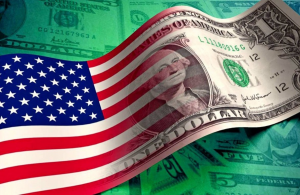Britain's labour market weakened before this month's tax hike on employers, data showed on Tuesday, but wage growth remained strong, complicating the job for the Bank of England which is also expecting an economic hit from U.S. trade tariffs.
Vacancies fell below their pre-COVID pandemic level for the first time in almost four years in the first three months of 2025, the Office for National Statistics said.
Provisional data given by employers to the tax authorities showed the number of employees fell by 78,000 in March. That was the biggest drop since early in the pandemic in 2020 although the numbers are often revised.
February's figure was updated to show a drop of 8,000 compared with a previous estimate of a 21,000 gain.
Sanjay Raja, Deutsche Bank's chief UK economist, said the softening in the jobs market would outweigh Britain's still-fast pace of pay growth for the BoE's Monetary Policy Committee.
"Big picture, the MPC has the green light to cut Bank Rate in May," Raja said. "Trade uncertainty remains rife. And slack in the labour market is emerging."
Advertisement · Scroll to continue
Investors were pricing a more than 90% probability on the BoE cutting rates by a quarter of a percentage point on May 8, after its next scheduled meeting.
U.S. President Donald Trump's tariff onslaught is expected to slow the world economy, hurting Britain alongside the direct impact of new U.S. duties applied to its exports.
The column chart shows the vacancies in Britain's labour market with a marker at the pre-pandemic level and columns of May 2021 and March 2025 highlighted.
WAGES INCH UP
Yael Selfin, chief economist at KPMG UK, said the rise in labour costs in April - when finance minister Rachel Reeves' increase in social security contributions came into effect - was likely to slow pay growth soon.
Britain's minimum wage also went up by almost 7% this month, which could weigh on hiring plans.
The BoE is trying to gauge whether inflation pressures in the labour market are easing sufficiently for it to continue cutting interest rates.
Official figures due on Wednesday are expected to show consumer price inflation of 2.7% in the 12 months to March. That would be a slowdown from 2.8% in February but it would be above the BoE's 2% target and the central bank has said it expects inflation to hit almost 4% later this year.
In the Kenyan village of Kamathatha, farmer-turned-seed advocate Martha Njenga is teaching fellow villagers traditional seed preservation methods – empowering them to save and replant seeds season after season.
The ONS said average weekly earnings, excluding bonuses, rose by 5.9% in the three months to February compared with the same period a year earlier, faster than a revised 5.8% increase in the three months to January.
Private-sector pay excluding bonuses - a gauge of domestic inflation pressure watched closely by the BoE - rose by 5.9%, compared with the same period a year earlier, unchanged from the pace in the three months to January.
A Reuters poll of economists had pointed to slightly stronger growth of 6.0% in both measures of basic pay.
The ONS said Britain's unemployment rate, which is based on a survey that the agency is overhauling and is no longer considered an accurate gauge of the jobs market, held at 4.4%.
Gabriella Dickens, G7 economist at AXA investment managers, said the jobless rate might actually be closer to 4.8% or 4.9%.












